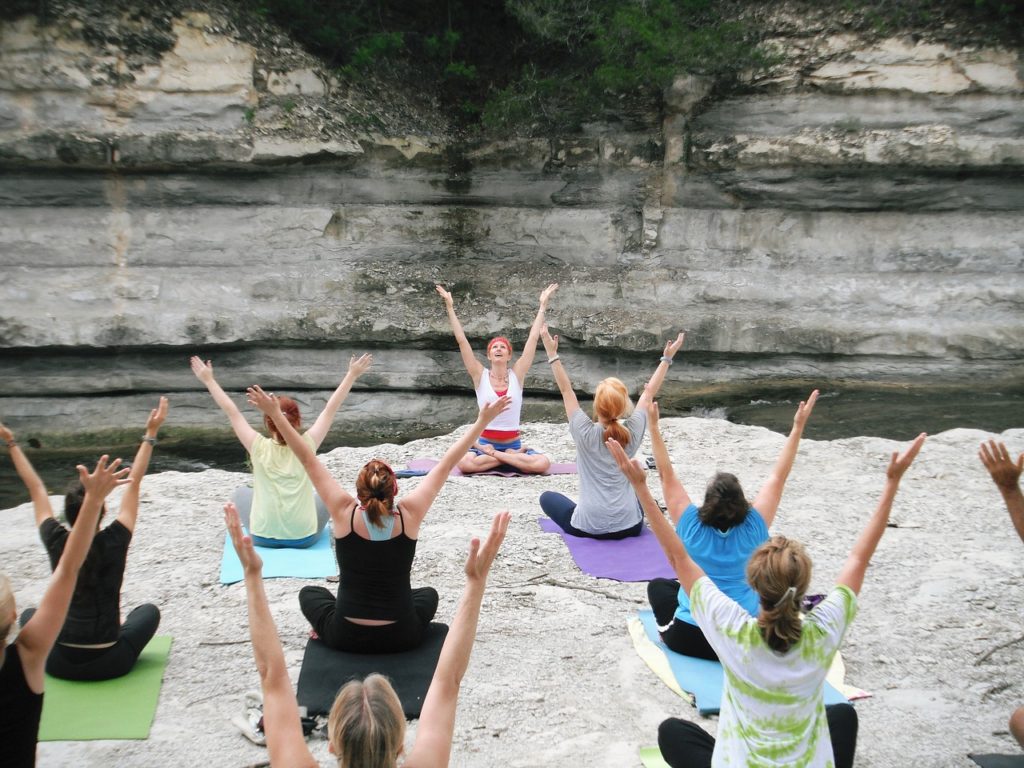If you are trying to live a healthier and happier lifestyle eating a balanced diet and going to the gym. Focusing on improving overall work and family time to create a better balance. But you’re still not where you want to be. Why don’t you consider incorporating a regular meditation practice into the mix? If you go to yoga a few times a week what about considering meditation?
Perhaps you’re not sure where to start and have seen there are numerous meditation apps available. Do meditation apps really work? And if so, which ones should you try if you are new to meditation? Yes, they can work. But you have to know what to look for in a meditation app to guarantee the results you’re expecting.
How Do You Know If Meditation Apps Really Work
What to Look for in an App
It’s important to make sure you know what to look for in a meditation app if you want it to work. For example, if you’re after stress relief, and choose a mindfulness app focusing on helping you sleep better.
You might not achieve the desired results or effect. Like anything, you need to pinpoint the treatment (app in this case) to your ailment (what you’re using the app for). There are hundreds of meditation apps you can choose from. Some of the focuses include:
- Meditation for women (or men)
- Improving mental clarity
- Relaxation
- Improving breathing
- Improving sleep
- Stress reduction
- Improving overall health and well-being
Ultimately, you want to work on all of these aspects of your life. You want to sleep better and relax. You also want to unwind and learn to forget about work when you leave for the day. Meditation can help you on all of these fronts. But, for those who want to find the right app, that will work for them.
Look for those that specifically target treatment in the areas you’re trying to improve upon in your life most. This will help deliver the best results.

You Have to Put it to Practice
A meditation app will only work for you as much as you put it to practice. It’s similar to asking your doctor if a specific medication will work. If they tell you to take it twice a day, and you only take it once, you’re not going to see the results.
If you’re told to exercise more to lose weight and eat healthier foods. But you’re not doing so, is this your fault or the doctors? The same goes for the meditation app.
These apps, in theory, teach the same principles you would learn in a meditation course or retreat. So, as long as you’re putting what you’re learning to practice, you should see the results you want to see. If you’re looking for some helpful information on this then LLC in Florida is a great place for this.
If you’re only doing half of the work, or if you have one eye on the TV while you’re doing deep breathing exercises on the app, can you really expect to see the results you want to see in learning how to relax? Probably not.
Where You’re Working and Timing
Meditation is going to result in the best outcome when you’re in a calm environment. Firstly, you have to remember you’re wearing headphones or earbuds to listen to meditative techniques and practices on a smartphone or tablet.
So, you’re already at a disadvantage, as opposed to being in a calming environment, where you’re blocked off from the world around you, without devices tempting you to become distracted. It’s important for you to choose the right location and the proper time for you to meditate in. If you want to achieve the best results using a meditation app you should:
- Be in a stress-free zone (somewhere secluded and quiet)
- Choose a time where you can immerse yourself in the meditative techniques and nothing else (don’t schedule it a few minutes before an important meeting so you’re not rushing through the practice)
- Make the time for you (think of it as the time you’d go to the gym or to a meditation class, do the same with your app)
- Create an environment which is calming, low or no lighting on, no external noise, no stress or outside interference
- Choose the right time of day (some people are more relaxed in the morning others at night, find what works for you)
If you take it seriously and take it in the same manner as you would if you were going to a meditation class that you were paying for, outside of the home, you can expect to see the results.
If, however, you make it playtime with the kids, let the dog in, and let people pull at you in every direction when you’re at home, you can’t really expect the meditation app to work. You have to make a focal point and effort to make the system work if you want to see the results.

Try a Few
Even if you know what to look for in a meditation app, and find one with various great meditative techniques you think might work for you, that might not be the case at first. I personally enjoy and use Declutter The Mind. It includes a large library of different practices for different purposes.
Choosing an app is similar to choosing a class you would pay for. You might not like one coach, but you try out a few other classes until you land the perfect one. The same goes for the meditation app.
There are countless free apps, so download and try out a few. See what techniques work for you and which ones don’t. Mix and match a few. There are countless studies which prove there are numerous benefits to using meditation apps. And, with hundreds to choose from, they’re obviously working for the masses of people who are flocking to them.
For anything to work, you have to be willing to immerse yourself into it and dedicate yourself to it entirely. The same goes for these apps. It will take time to find the right one, but when you do, it can truly benefit your life in helping you learn to relax, calm down, and improve your overall wellness and state of being.
